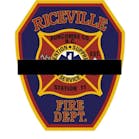Dixie Suburban Fire Chief Tim Robbins answered the questions at a meeting organized by Metro Council member Mary Wooldridge.
Wooldridge wanted Chief Robbins to explain why it took firefighters until the second week in May to find Craig Moore's body in the basement of his burned out home that was destroyed by fire in January. Wooldridge said "these remains would have been discovered a lot sooner had somebody listened to the neighbors."
When firefighters searched the home immediately after the fire, they didn't find a body. But neighbors told us they believed Moore was still trapped inside, and explained to firefighters that he rarely left home.
So what went wrong? Robbins said when firefighters searched Moore's home the first time, "it didn't seem like there was anybody in there."
Robbins says he thought police or arson investigators would take charge. "I feel badly that I didn't ask enough questions, but I was depending on people that are full-time paid investigative type of people to know what to do."
Only when Moore's brother did his own research and told the chief he could call in cadaver dogs from the medical examiners office did firefighters return to the home where they found Moore's body in the flooded basement.
During questioning, Robbins said his department didn't know the proper protocol to follow to handle the situation. "We had no information -- there's no guidelines, nothing printed, nothing that I could find to tell us that we can do that sort of thing."
Asked if he would do things differently next time, Robbins replied: "Of course I would. I would never have let things drag on if I knew for a fact there was something I could do."
Many neighbors on Moore's block believe this lesson was learned too late. "I think it was negligence and I'm very displeased," said one.
"He (Robbins) should have known," said another. "He should have known."
Related :





